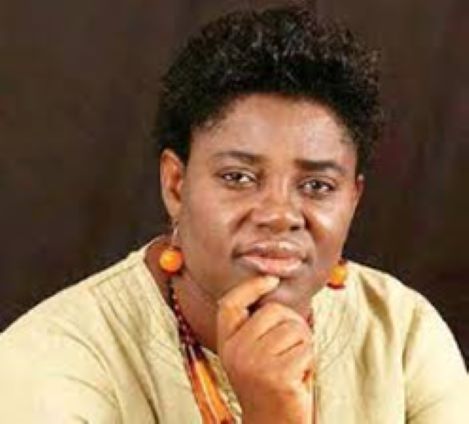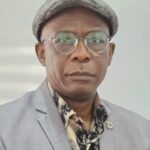Dr Uju Agomoh is the the secretary to the Independent Investigative Panel on the Alleged Corruptions and other Violations in the Correctional Services in Nigeria. In this brief interview with our correspondent, Abbanobi -Eku Onyekachi, she beckons all hands to be on deck toward addressing problems in the correctional centres in Nigeria. Excerpts
Qtn: At the moment, are you satisfied with reports you received so far?
Ans:: I think that it is quite an eye opener for a lot of people. I am sure that so many of the things; perhaps many didn’t know about, especially those who are not used in going to correctional centres. And if you recall the process and how the panel has been handling this issue is that, after the submission, members of the public should ask direct questions. So anything that isn’t clear to them, they have the right to ask.
And then you will recall that in terms of receiving the report on the basis of motions raised by the citizens who are here, that will guide the panel on what to do.
Qtn: The correctional centres are under the Ministry of Interior, what is your advice to the ministry to this effect?
Ans: I think that the first thing to say is that there is a commendation that is coming to us from the Minister, which is something good. Secondly, we want to ensure that we are meeting the recommendations with … In fairness, the minister said that it shouldn’t be business as usual. He said that he is willing to implement the recommendations and I think that all he can do is to support that process and to ensure that each and every of us decide to take action and to ensure the implementation of the recommendations from this panel.
And also to ensure that nothing is hidden; which means if you know anyone whose right is violated by the correctional centres, you should encourage the person to bring his/her complain to the panel. If you don’t submit your complaint to the panel, they won’t know what you are going through and if you don’t know what you are going through, it will be difficult to deliberate on it.
Again, what you will do for the panel and Nigerians, is to encourage people to submit their complaints to the panel, if there are things they want the panel to look into, because the holistic scope we have, then the panel will do so and once the recommendations are out there, is it not what we are pleading with you, to ensure that, and as many people as possible support the full implementation of the recommendations.
Qtn: Do you have it in plan to partner the media in this project?
Ans: Oh yes, I think that the media is okay. We can’t do without the media, because everyday has its own peculiarity. Those who were here the previous day, would notice that what was the focus is different from thoe of today. Again, what will be critical is that as we have this strong engagement with the media, is that every key issue that is raised on the floor of the panel, especially during the public hearing, that the media can help deepen the understanding of the whole thing by asking questions. All the things we highlight, previous day, we didn’t hear about mattresses, but today we did.
Today we also heard the problem in terms of farm centres and under utilization. We equally heard about the desperation between the correctional homes in the rural area and the the ones in the urban areas. So that is why the partnership with the media can’t be ignored. While we urge the media to be well engaged, we want to let them know that the panel is open to the media and will engage them in a round table discussion, when the time comes. We are also urging the media to use their profession to tell Nigerians to engage in this process. First of all, let them encourage them to submit their complaints to the panel and to be willing to attend physically or virtually the public hearing.
Qtn: What is your assessment of the investigation so far?
Ans: So far, what we have is to receive reports from various audit teams that went to some selected states. We have received reports from Lagos, Adamawa, Plateau, Anambra and Edo States’ teams, as well as the ones in Suleja, Niger State, Keffi, Nasarawa and Kuje in the Federal Capital Territory (FCT), that keep inmates for the FCT.
We looked at them and we have also interrogated some of the reports
and highlighted some of the issues that required closer look and scrutinizing. It
was an open process and that is what we want to achieve; whereby the whole notion of transparency will be seen. We want people of Nigeria to participate. We aren’t hording any information.
If you have been following up, like they raised issues of corruption, and what those issues are and where, so that by the time we start to talk about recommendations, everybody will understand why those recommendations, because there are so many inmates. We want a correctional service and a country everyone will be proud of, which justice is a key. As you know, the correctional service is almost the barometer of everything that happens within the justice system.
But do you remember that this is the first stage of the public hearing and we will continue the public hearing session from January 13th. And again, I am hopeful by that time we are planning, the schedule we are looking at having it for one or two weeks stretch to receive the public hearing. We have only one state that is outstanding and that is Abia State in terms of report and we shall receive the state’s report at that stage.
We shall also begin to look at individual complains,from anyone that has cases against correctional service or members of correctional service. We shall also be interfacing with key stakeholders, in the case of consultative session, that is, the professional groups and all that. The schedule of all that will be done in that January.
Qtn: Is the mandate of the panel only advisory, or can they do any intervention?
Ans: The scope of the panel’s work is to look at comprehensive recommendations that need to be made, or clearly all of the issues, including all the issues that are bringing impediment to effective implementation of the Nigerian Correctional Services. We are also looking at the processes that made it prune to corruption. So it needs comprehensive, of course it is the recommendations that we shall make and will want them to have concrete intervention.
Part of what we are also doing, is that we are getting into a situation of interfacing and engaging with the critical stakeholders. We’ll also begin to create awareness about a whole society’s approach. There are many stakeholders that can do something. I mean, we don’t have to wait for the government. There is a critical role for the government to play and there are so many other things people can do. You heard it today, among which are the issues of mental health, inappropriate provision of professional health providers in those facilities, beddings, mattresses, including paying N15,000.00 in some facilities, just to have a mattress. Some may like to know how many inmates we have in this country and decide to produce mattresses for them.
This is also a process and that is why we are making it transparent, that many people will key into this and see themselves as part and parcel of the solution. There are immediate interventions that we can cushion. There are medium and long terms. We are using this opportunity to call on all Nigerians to be interested in what is happening and also to assist in the area of solution.



